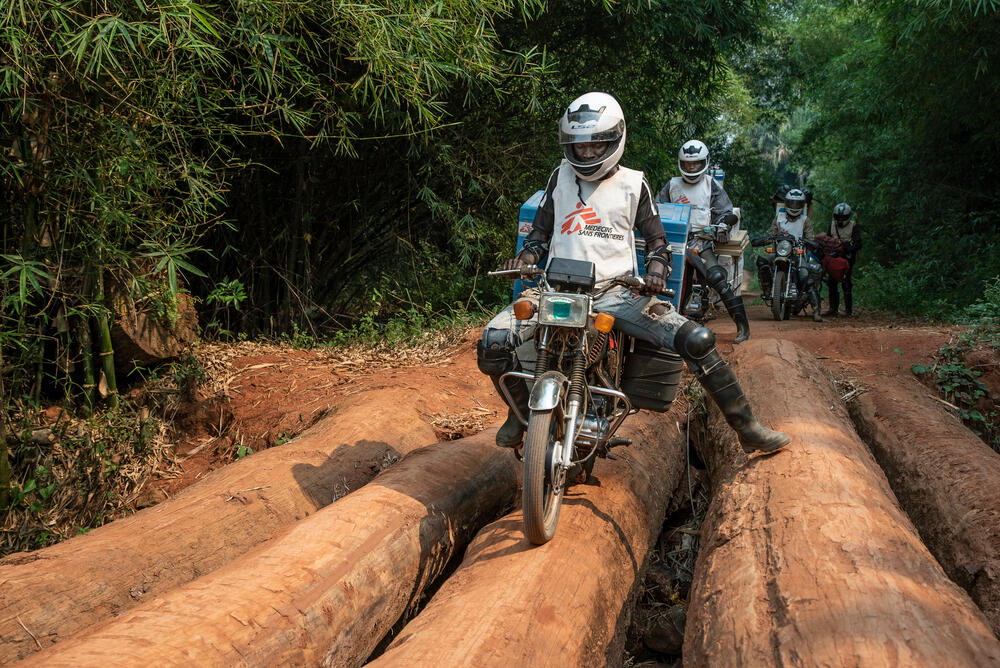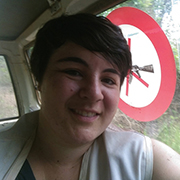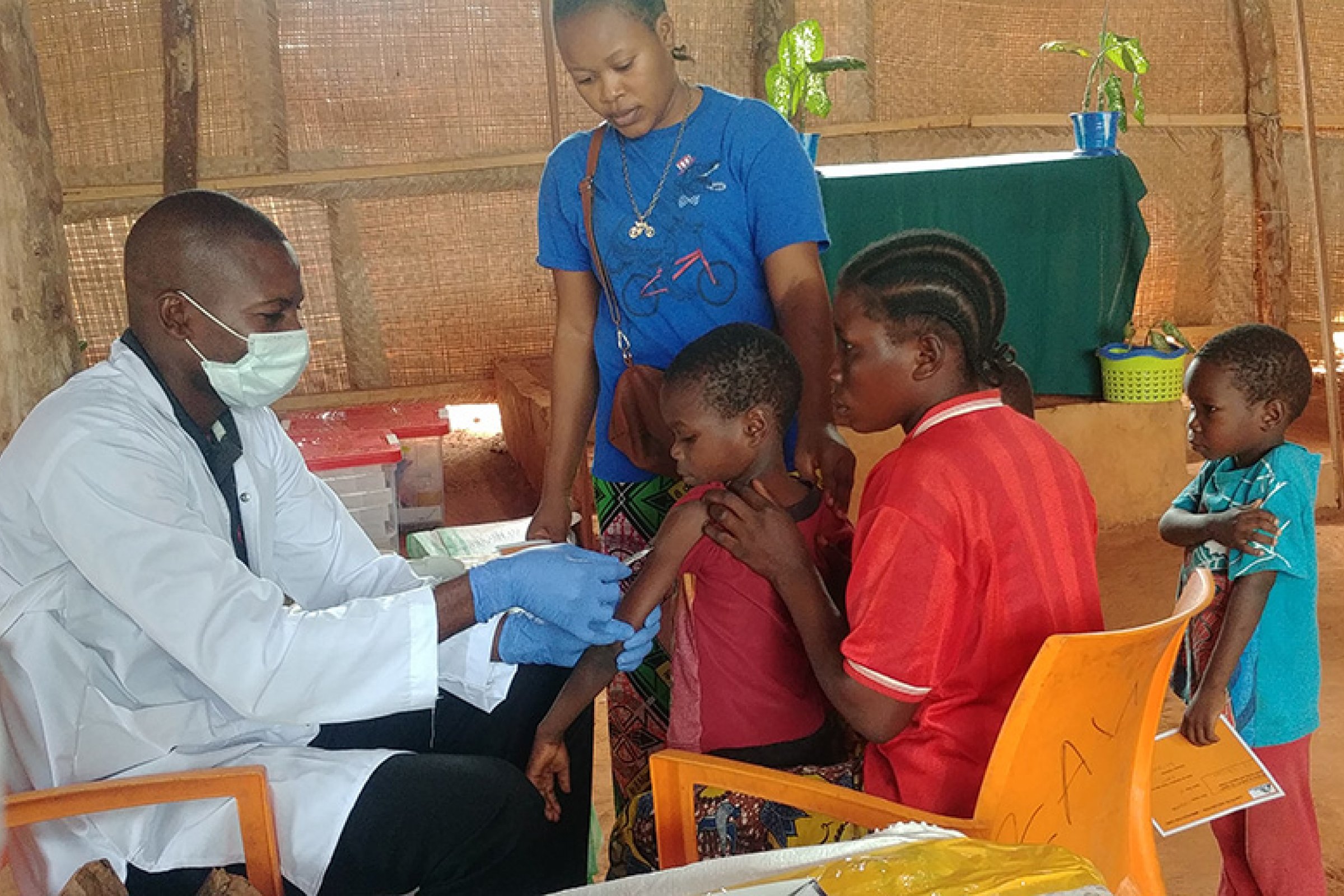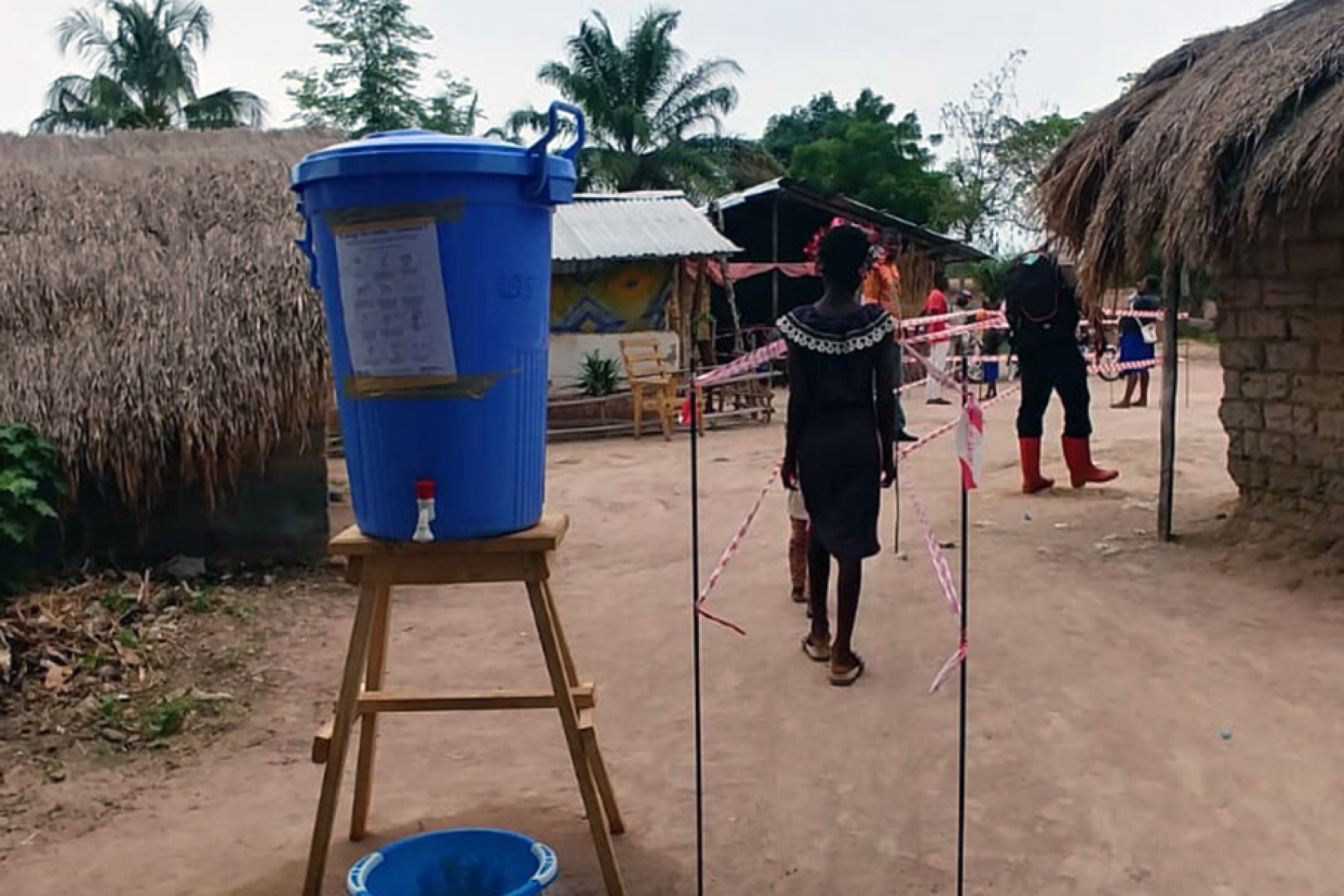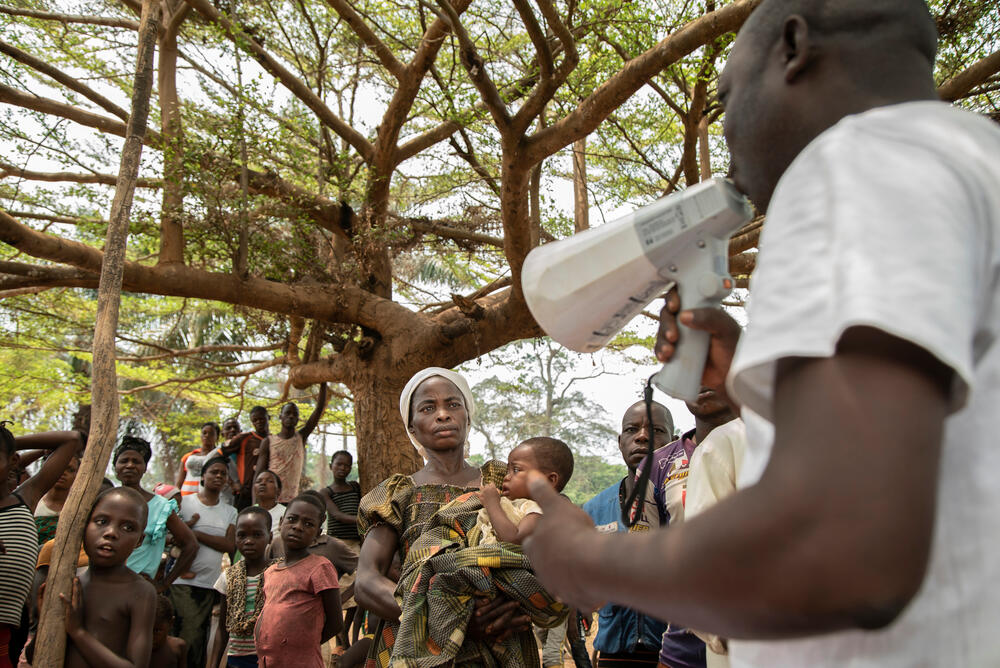Measles in DRC: Fighting an epidemic in a pandemic
"Contagious diseases are nothing new in the Democratic Republic of the Congo (DRC). Ebola. Measles. Cholera. There are always outbreaks, again and again, numerous people getting sick and sometimes dying.
Nothing new – not for the Congo and not for MSF, who has been working in the country for decades.
The measles epidemic
It's nothing new for me neither. I arrived in DRC in early November. Initially due to Ebola, but since the end of January working in the current measles epidemic.
We’ve just finished three back-to-back campaigns, vaccinating more than 82,000 children against measles. The same thing over and over again, you might think. Always the same? Well, not entirely.
"Firmly in the grip of the coronavirus, the world is holding its breath"
Of course, no one intervention is like another. Another province, another place, different people and different circumstances. Urban or rural environments make a big difference, too.
The biggest or at least the most detectable difference today though, is the current COVID-19 pandemic.
“The world is holding its breath”
There are no confirmed cases (yet) in the two provinces where we are working. But people's fear is palpable, and it is everywhere.
After our arrival in the province of Sud Ubangi, in the northwest of the country, the first reaction of the population was to fear COVID-19.
Was there a positive case in their city? For many that seemed the most likely reason for the appearance of MSF.
There are many doubts, many uncertainties. And it is essential and important to take these seriously.
Firmly in the grip of the coronavirus, the world is holding its breath. It’s holding its breath and trying to counter the virus with all possible means. This is important and this is good – especially as there is no curable medication or reliable vaccine – which would need to be globally available and affordable for everyone.
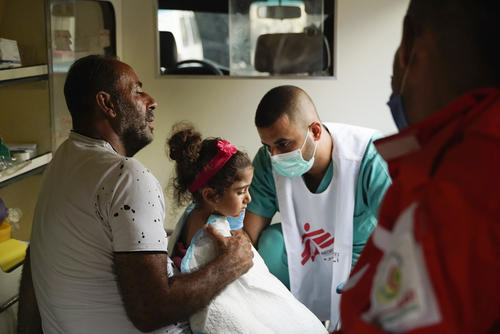
Medical care where it's needed most
"Measles in Congo is an epidemic within a pandemic. Ignoring this would be fatal."
Avoiding disaster
But one thing that should not be forgotten: simply because there is a pandemic, other crises do not disappear.
Measles in Congo is an epidemic within a pandemic. Ignoring this would be fatal.
Hold your breath, reset yourself, identify new priorities – yes! But holding your breath eternally would be a disaster. If it all comes down and stands still, it will then crash down on us, as the lack of oxygen leaves us gasping for air.
If we ignore measles now, patients risk later dangerous co-infections with measles and COVID-19. This will be an additional burden on the country's already weakened health system.
Another question must be asked: is this really the best time for a mass measles vaccination campaign?
The answer is still “yes”.
Here in Sud Ubangi, COVID-19 is currently only a threat. But measles is here. Children are dying and the real tragedy is that it is avoidable.
There is a vaccine. Therefore, we must do everything we can to stop the current epidemic, to protect as many children as possible now and later against this fatal disease.
Taking precautions
But, importantly, we also have the mandate not to expose people to a risk we can avoid. That is why we have adapted ourselves to the situation. Social distancing in the middle of a vaccination campaign sounds paradoxical – but it is not impossible.
The queues are separated, extra-narrow and extra-long to break up the crowds. Families are instructed to keep a distance – and yes, it works! A large mandatory handwashing point has been set up for all parents and children right before entering.
The places where we vaccinate – usually churches, schools or shelters – are usually large and offer enough space. This enables us to keep the necessary distance between the individual activities such as registration, vaccination and data collection – all in a circuit that only works in one direction.
"This is also an opportunity... to learn something new, to remember what is important for us and to look out for each other. Because right now, solidarity is what we all need."
Increased numbers of staff allow us to better control and instruct people. In addition, those who are in direct contact with children to be vaccinated are equipped with appropriate protective equipment.
Community engagement
However, increased communication and awareness among the community is almost more important.
Everyone knows about measles, but COVID-19 is new and all questions, doubts and lack of knowledge about the new virus are reflected here. False rumours in the media have now led to a general mistrust of vaccinations. So, a lot of sensitive awareness-raising is required.
We are working closely with leaders in the communities, spreading their reinforcing and vaccination-approving messages by radio broadcasts. During the vaccination campaign itself, part of the team goes from door to door to answer questions and clarify any doubts.
The new normal
I sincerely hope that the pandemic in this region will still manage to be limited, at least for quite some time. And, I hope that the world starts breathing again.
The air will smell and taste different, and we will all have to get used to a new normal – not the one we knew before. But we cannot afford to hold our breath for too long and forget the other crises happening across the world. We will have to find new ways to deal with them.
This is also an opportunity. An opportunity to learn something new, to remember what is important for us and to look out for each other. Because right now, solidarity is what we all need."
MSF in the Democratic Republic of Congo
The second largest country in Africa by area, the Democratic Republic of Congo (DRC) is rich in resources but plagued by conflict.
It has endured decades of multiple overlapping crises and severe limitations in medical capacity. Médecins Sans Frontières/Doctors Without Borders (MSF) run some of its largest programmes in DRC, working in 21 of the country’s 26 provinces.
We provide services ranging from basic healthcare and nutrition to treatment for victims of sexual violence and people living with HIV/AIDS. In 2019, we responded the country's largest outbreaks of measles and Ebola to date.
